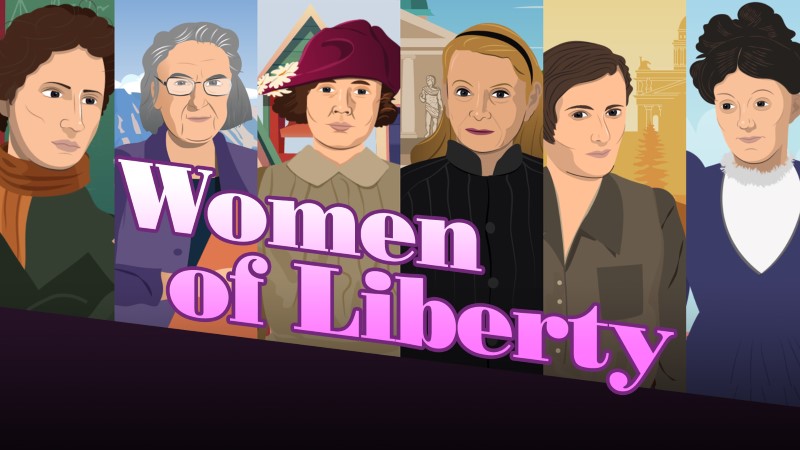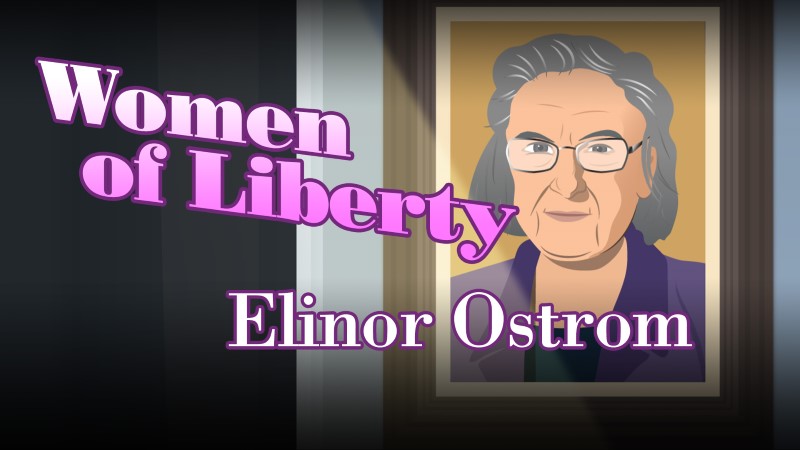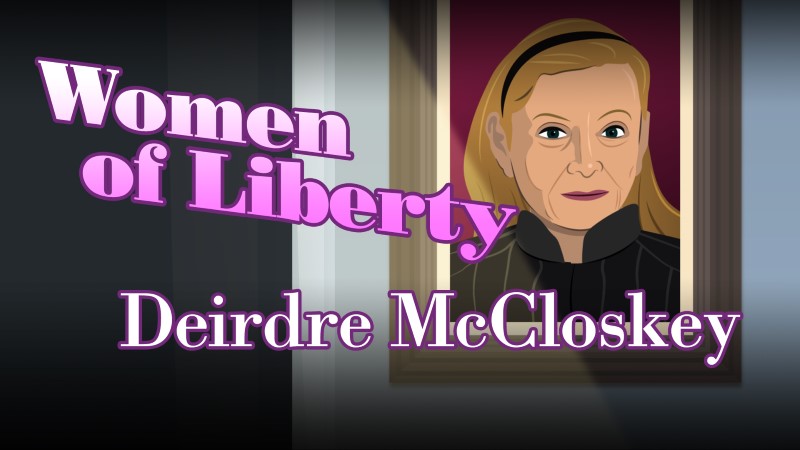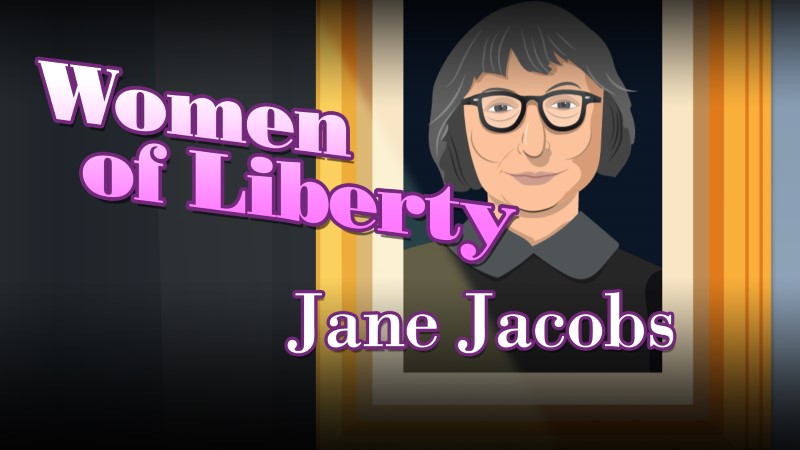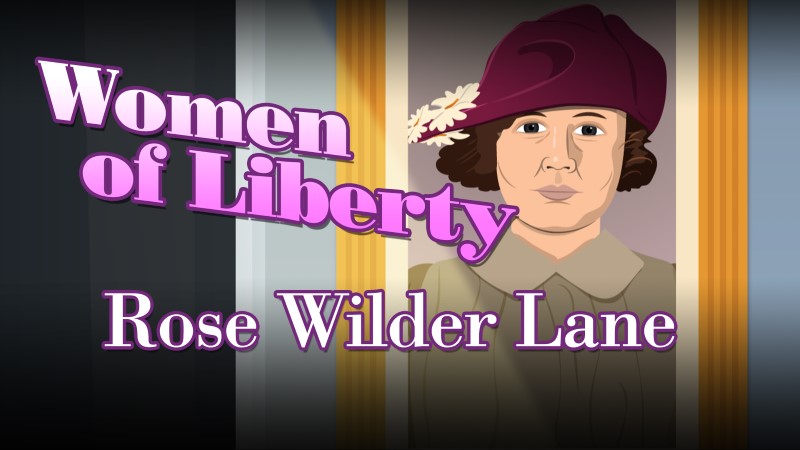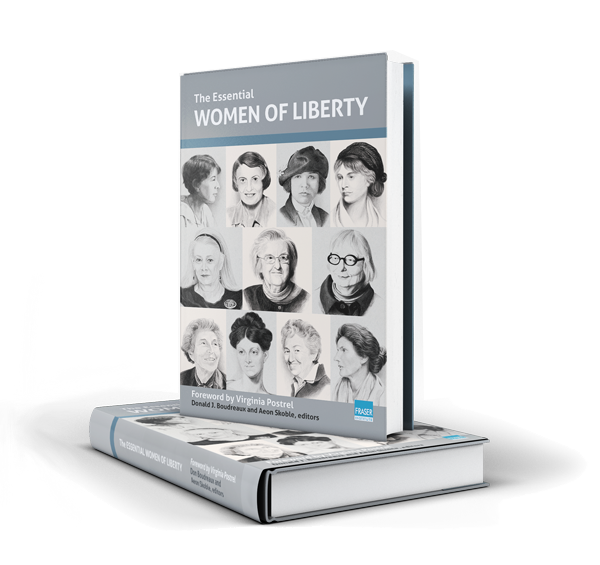Foreword by Virginia Postrel
Edited by Donald J. Boudreaux and Aeon J. Skoble
This series of essays, written by leading scholars in the United States, Canada and Europe, explores the lives and ideas of some of the most influential women over the past few centuries whose work contributed enormously to the democratic, prosperous and free societies that many people enjoy today. They are a remarkably diverse group of women. Their lives span the eighteenth to twenty-first centuries and their contributions are significant despite the barriers each faced. Some were educated at prestigious universities while others only had informal schooling. Some were academics, others writers and journalists, and still others activists. What they had in common was an understanding of the power of freedom and liberty, and their influential advocacy of such during their lives. These essays are a celebration and recognition of their lives and contributions.
The work introduced in these essays exemplifies numerous strands of thought within the classical liberal tradition, from feminism and abolitionism to the Chicago School of economics. These thinkers include some of the most significant figures in the development of mid-twentieth-century American libertarianism, with its emphasis on the autonomous individual, alongside some of the most influential analysts of how social interaction brings forth order without top-down design.
Some of these writers emphasize empiricism, others theory. Addressing why the West grew rich, one has written a three-volume history informed by literature, culture, and massive amounts of data. Another developed the metaphor of mechanical energy to argue for the freedom of creative individuals. One blamed the Great Depression on contractionary monetary policy, another on Americans “declining resilience” in the face of hardship.
Why put such a heterogeneous group in the same volume?
The obvious answer is that they are women. They are not the norm for scholars or public intellectuals or, for most of history, thinking human beings. However dissimilar their work may be, they seem to belong together. Anna Schwartz’s data-rich monetary economics may appear to have little in common with Ayn Rand’s popular novels, but their differences are overwhelmed by the social conditions of gender.
It is no accident that there are more journalists here than professors. Since the eighteenth century, commercial publishing has been more open to women writers—and their readers—than universities have been to female students or scholars.
Publishing also rewards generalists while academia largely deters them. The description of Jane Jacobs as “an amateur in the professional’s den” could apply to many of these figures. Schwartz’s intense specialization is the exception, Rand’s autodidacticism the rule. Even within the academy, Elinor Ostrom and Deirdre McCloskey represent cross-disciplinary researchers, with Ostrom achieving the highest honors in both political science and economics and McCloskey holding simultaneous appointments in economics, history, and English.
For all its practical disadvantages, there is something intellectually liberating about being an outsider. If you don’t belong, you are free to think in fresh categories. When Jacobs declared that there is “no virtue in confirming to the dominant opinion of the moment” and that “progress has been largely owing to the opportunity for experimentation,” she could have been speaking for all these thinkers—and for classical liberalism as a whole. These convictions represent both liberal principles and liberal methodology, both philosophy and culture.
The same is true of Isabel Paterson’s declaration that “It’s expensive, but I like to own myself.” As an abstract concept, self-ownership underlies some versions of libertarian political theory. But Paterson’s expression seems more practical, rooted in the historical experience of women. The ability to earn and control one’s own money, long denied to women, entails the ability to control one’s own life. Without economic independence, individual autonomy and intellectual integrity are difficult to maintain. As Sylvana Tomaselli writes, reflecting on Mary Wollstonecraft’s thought, “To be financially dependent was to be liable to be corrupted, to be unable to think for oneself, and thus to cease being one’s own person. She wanted all men and women to be freed from such dependence.” The resolutely independent David Hume, excluded from university posts by his unflinching religious skepticism, would have understood.
As Keeper of the Advocates Library in Edinburgh, however, Hume enjoyed the kind of research-friendly job denied to most of these female scribblers. To pay their bills, Mary Wollstonecraft, Isabel Paterson, Rose Wilder Lane, and Jane Jacobs ground out forgettable, and largely forgotten, articles and stories along with their political writings. (Rand’s bestselling novels funded her philosophical enterprises and a grant from the Rockefeller Foundation allowed Jacobs to escape constant deadlines to write her classic The Death and Life of Great American Cities.) Famous and intellectually well-connected in her day, Harriet Martineau wrote didactic fables for a mass audience and thousands of newspaper columns. Although influential in Victorian Britain, her work was ephemeral and is today known only to specialists. She enjoyed financial independence and a public voice, but not the liberty to craft enduring work.
Given greater academic opportunities and the discipline of scholarly interactions, might such thinkers have developed deeper explications of their ideas? Would Lane have completed her magnum opus The Discovery of Liberty rather than writing a popular book on needlework? Would Paterson have exercised broader influence through her writing rather than primarily through her immediate circle of admirers? Perhaps. But it’s likely what these women left behind was shaped as much by their restless personalities as by their social circumstances. The choices they made were driven not just by necessity but by an eclectic curiosity. That curiosity was well-suited to journalism, ephemeral though its products might be, and it fed their more ambitious works as well. In a world of highly specialized thought, they preserved the tradition of classical liberal interest in wide-ranging questions exemplified by Scottish Enlightenment thinkers like Hume and Adam Smith.
The diversity of its subjects makes this volume a particularly good introduction to themes within classical liberalism. Driven by curiosity, passion, and love (the root of both amateur and philosophy), the thinkers represented here illustrate both the breadth of the classical liberal tradition and its enduring appeal to independent minds.
Listen In
Listen to the Essential Scholars Explained podcast with host Rosemarie Fike in conversation with our authors to discuss the influential women whose work contributed to the freedom and prosperity we enjoy today.
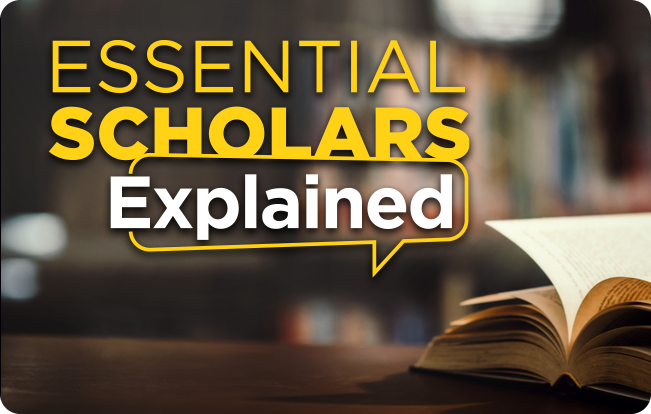
Jane Jacobs—Community impact and why it’s a key metric
Lydia Miljan, Professor of Political Science at the University of Windsor, joins host Rosemarie Fike to discuss Jane Jacobs’ unconventional road to economic thinking through community activism and urbanism—and why assessing the needs of communities within cities remains vital for effective, non-disruptive urban planning/design. They even get into the various ways community, big or small scale, combats isolation.
Rose Friedman and Mary Paley Marshall—Neck(s) of the Operation
Lynne Kiesling, co-author of the Essential Women of Liberty, joins host Rosemarie Fike to discuss the critical behind-the-scenes work done by Rose Friedman and Mary Paley Marshall—two women who, despite not having very public-facing roles when it came to their respective husbands' careers, both collaborated with and made invaluable contributions to not only the work of their partners, but the field of economics entire.
Elinor Ostrom and the Bottom-Up Approach to Community Maintenance
Dr. Jayme Lemke, Senior Fellow at George Mason University’s Mercatus Center, and host Rosemarie Fike discuss Nobel Prize winning economist Elinor Ostrom and why community is best served and best empowered through grassroots movements that enable solutions tailored to their specific needs.
Download the Book
Get a digital copy of the book. Choose the version you prefer below.
Explore the Book
Chapter by chapter summary of the book.
-
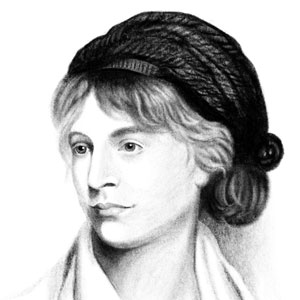
Chapter 1
Mary Wollstonecraft (1759–1797)
Mary Wollstonecraft is one of the essential contributors to conceptions and discussions of liberty. Influential since the publication of her Vindication of the Rights of Woman in 1792, she was and continues to be read and cited both within and beyond the English-speaking world (Botting, Wilkerson, and Kozlow, 2014). Frequently seen as the first English feminist, her philosophy is receiving increasing attention, thereby placing her views on the rights of women in the wider context of her economic, social, and political views. Most important in relation to the subject of her reflections on liberty is the close link she maintained between rights and duties, and her insistence that artificial hindrances to the development of all human beings violated natural law and divine justice. Liberty, for Wollstonecraft, had to be enjoyed by all, regardless of gender and race; it was her belief that gross inequality was incompatible with the well-being not just of the unprivileged, but also of the privileged.
-
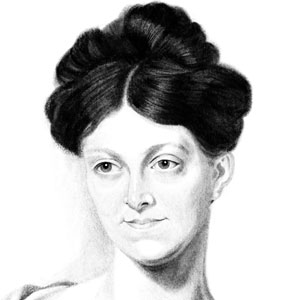
Chapter 2
Harriet Martineau (1802–1876)
Harriet Martineau was perhaps the greatest storyteller in the long tradition of liberal political economists. There is an engaging simplicity in her stories, told to educate the general public about basic principles of economics, the benefits associated with the division of labour and free trade, as well as alternatives to a nineteenth century system of enslavement in the US South. Her monthly serials, published under the umbrella title Illustrations of Political Economy, eventually brought her enormous celebrity and much-needed financial independence.
-
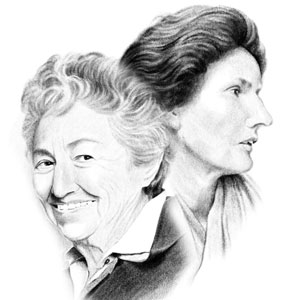
Chapter 3
Mary Paley Marshall (1850–1944) and Rose Director Friedman (1910–2009)
With fewer academic and career opportunities than in the present, women in the past often found outlets for their scholarly and intellectual pursuits by collaborating with their husbands, sometimes while also raising families. That reality is reflected in the economics profession as well. This chapter highlights the intellectual contributions of two women who were economists in their own rights but who also married well-known and influential economists with whom they collaborated: Mary Paley Marshall and Rose Director Friedman. The nature of the collaborative intellectual relationships differed in the two cases in ways that reflect both the personal and cultural characteristics of each.
-
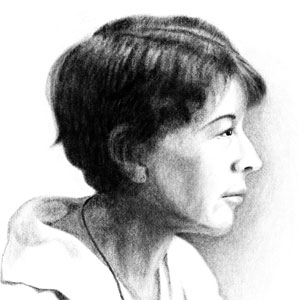
Chapter 4
Isabel Paterson (1886–1961)
Isabel Paterson lived an extraordinary life. She was vivacious and independent. She was witty, insightful, and stylish. She was a woman of unwavering principle and was sometimes acerbic and curmudgeonly. She had a compendious memory, a towering intellect, and was extremely well read. She was a force of reason against misguided collectivist ideas and a vocal public advocate for the individual and for capitalism through her books, articles, columns, informal literary salons, and letter exchanges. You would be hard pressed to find a more influential thinker in the modern individualist movement.
-
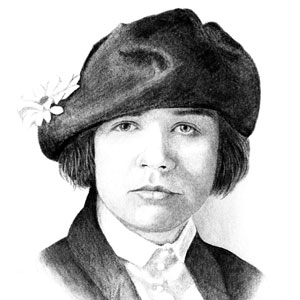
Chapter 5
Rose Wilder Lane (1886–1968)
Rose Wilder Lane based her analysis of human liberty on her experiences and observations across the United States—and across the globe. In 1943, her always adventurous life took an unexpected turn. Not only did she publish The Discovery of Freedom: Man’s Struggle Against Authority that year, but she also took on the Social Security system, the US Post Office, and the FBI.
-
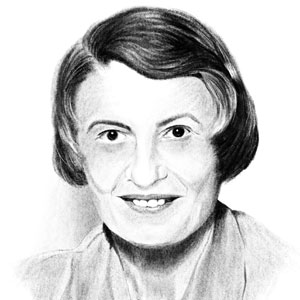
Chapter 6
Ayn Rand (1905–1982)
Born Alisa Rosenbaum on February 2, 1905, in St. Petersburg, Russia, Ayn Rand would go on to become one of the most famous and polarizing defenders of liberty to wield a pen. Enamored with stories featuring swashbuckling heroes, French literature, and American film, Rand knew from a young age that she wanted to be a writer. Her aim was to depict the ideal man with an uncompromising heroic vision. To achieve this, Rand worked out over many years a philosophical system she would later call Objectivism.
-
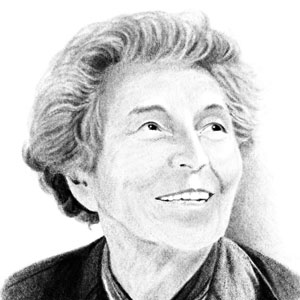
Chapter 7
Anna J. Schwartz (1915–2012)
Today it is commonly recognized that a country’s central bank and the money supply have a significant impact on inflation and economic activity. Indeed, whether in research or academic circles, in the financial industry, or in popular press, no one can utter the words “recession” or “inflation” without discussing the actions of the US Federal Reserve. This was not always the case. Prior to the 1960s, few people acknowledged that the money supply and a central bank’s actions governing it matter for economic activity and prices.
-
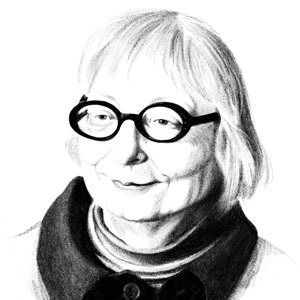
Chapter 8
Jane Jacobs (1916–2006)
Jane Jacobs is best known for her books about cities. Since the Covid-19 pandemic, some people have speculated about the future of cities. With learning, working, and entertainment all being conducted in virtual spaces, are there still sufficient reasons to organize ourselves in places called cities?
-
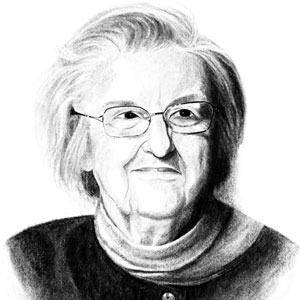
Chapter 9
Elinor Ostrom (1933–2012)
Elinor Ostrom was a scholar, citizen, and academic entrepreneur of exceptional insight and determination. Her research on democratic self-governance strongly influenced the emerging sub-fields of public choice and institutional economics, established an important new framework for the analysis of common pool resources and collective action problems, and helped to build bridges between otherwise unconnected bodies of research. For these contributions, Ostrom was awarded both the highest honor in political science and the highest honor in economics.
-
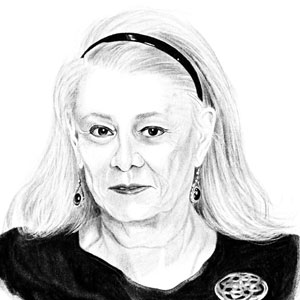
Chapter 10
Deirdre McCloskey (1942– )
Economists are not generally known as iconoclasts. Ask most people to imagine an economist and they envision a nerdy white man in a blue suit talking about interest rates. Deirdre McCloskey breaks that stereotype in several dimensions, describing herself as a “literary, quantitative, postmodern, freemarket, progressive-Episcopalian, ex-Marxist, Midwestern woman from Boston who was once a man. Not ‘conservative’! I’m a Christian classical liberal.” Born in 1942 as Donald, the son of a professor, McCloskey famously undertook gender reassignment at age 56, writing a beautiful and eloquent memoir about her decision and the process (McCloskey, 1999) and staking out a professional path to make economics more humane (McCloskey, 2020).
About the Author
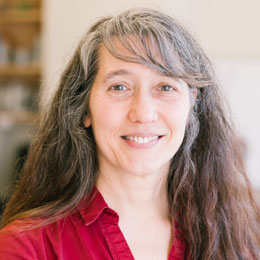
Carri Ann Biondi
Carrie-Ann Biondi is an adolescent program manager and coach at Higher Ground Education and a humanities guide at Academy of Thought and Industry. She taught a wide range of philosophy courses at the college level for 25 years, most recently at Marymount Manhattan College, NY. Her research and publications focus on ancient philosophy, the philosophy of education, and popular culture and philosophy. She has a BA in American studies from Hofstra University, an MA in American culture studies from Bowling Green State University, and both an MA and a PhD in philosophy from Bowling Green State University.
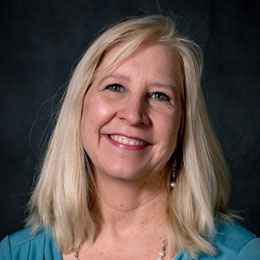
Dedra McDonald Birzer
Dedra McDonald Birzer is a lecturer of history at Hillsdale College in Michigan, and the editor-in-chief and director of the South Dakota Historical Society Press. She is currently writing an intellectual biography of Rose Wilder Lane and has published essays in the Ignatius Critical Editions of Uncle Tom’s Cabin, Jane Eyre, and Wuthering Heights. She completed her doctorate in history at the University of New Mexico in 2000.
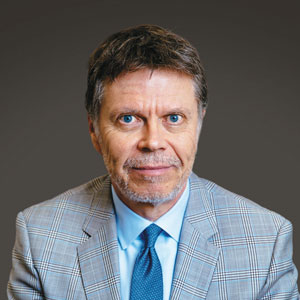
Donald J. Boudreaux
Donald J. Boudreaux is a professor of economics and former Economics Department chair at George Mason University and a Fraser Institute senior fellow. He is also a senior fellow with the F.A. Hayek Program for Advanced Study in Philosophy, Politics, and Economics at the Mercatus Center at George Mason University, and holds the Martha and Nelson Getchell Chair for the Study of Free Market Capitalism at the Mercatus Center. He has a PhD in economics from Auburn University in Alabama and a law degree from the University of Virginia.
Professor Boudreaux has lectured across the United States, Canada, Latin America, and Europe on a wide variety of topics, including the nature of law, antitrust law and economics, and international trade. He is published in a variety of newspapers and journals, including The Wall Street Journal, The Washington Times, and The Supreme Court Economic Review and writes a blog (with Russell Roberts) called Café Hayek, cafehayek.com.

Andrew G. Humphries
Andrew G. Humphries is a Postdoctoral Fellow at Arizona State University in the School of Civic and Economic Thought and Leadership. He earned his PhD in Economics from George Mason University, his M.Ed. in Montessori Integrative Learning from Endicott College, and his BA in Liberal Arts from St. John’s College. He previously worked as an educator in the United States, India, and Guatemala. He is most interested in the history of economic thought, liberal education, self-government, and Socratic pedagogy.

Rachel Davison Humphries
Rachel Davison Humphries is director of outreach at the Bill of Rights Institute in Arlington, Virginia, where she currently leads innovation, partnerships, and programming. She earned her BA in Liberal Arts from St. Johns College in Santa Fe, New Mexico, and Annapolis, Maryland, and her Masters in Learning, Design & Technology at Georgetown University in Washington, DC.
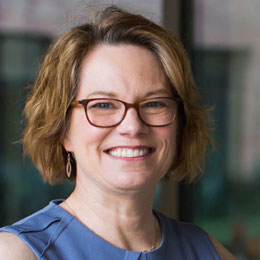
L. Lynne Kiesling
L. Lynne Kiesling is a research professor and co-director of the Institute for Regulatory Law & Economics in the College of Engineering, Design and Computing at the University of Colorado–Denver. She received a BS in Economics from Miami University (Ohio) and a PhD in Economics from Northwestern University.
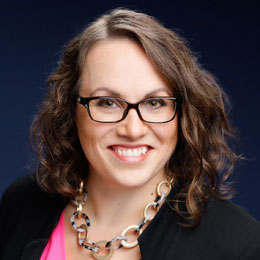
Jayme Lemke
Jayme Lemke is a senior research fellow at the Mercatus Center at George Mason University and a senior fellow in the F.A. Hayek Program for Advanced Study in Philosophy, Politics, and Economics. In addition to her work on the evolution of women’s economic rights and opportunities in United States history, she has written on public choice and institutional theory as applied to policing, higher education, and other local public services. Her PhD in Economics is from George Mason University.
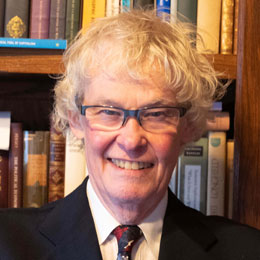
David M. Levy
David M. Levy is professor of economics at George Mason University and a distinguished fellow of the History of Economics Society. Levy has written seven scholarly books, over 100 journal articles, and dozens of academic books reviews and chapters in scholarly publications. He received his PhD in economics from the University of Chicago, studying under Nobel laureate George Stigler.
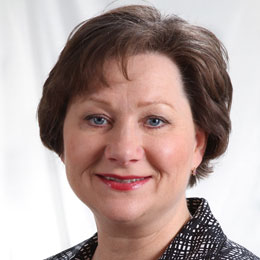
Lydia Miljan
Lydia Miljan is professor of political science at the University of Windsor, and a Fraser Institute senior fellow. Her main research interests include how journalists’ personal views are reflected in news content and public opinion formation. In addition to peer-reviewed papers, she is the author of three books: Public Policy in Canada, Hidden Agendas: How Journalists Influence the News, and Cross-Media Ownership and Democratic Practice in Canada. She holds a PhD in Political Science from the University of Calgary.

Liya Palagashvili
Liya Palagashvili is a senior research fellow at the Mercatus Center at George Mason University in Arlington, Virginia, and a research fellow at New York University School of Law. She has published in academic journals, books, and in major media outlets such as the New York Times and Wall Street Journal. Her research is in law and economics, political economy, and entrepreneurship. She earned her PhD in Economics from George Mason University in 2015.
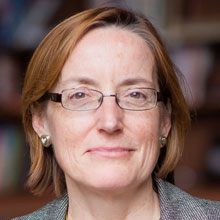
Sandra J. Peart
Sandra J. Peart is dean and the E. Claiborne Robins Distinguished Professor in Leadership Studies at the University of Richmond. She is past president of the International Adam Smith Society and the History of Economics Society. Her recent publications include The Essential John Stuart Mill, published by the Fraser Institute. She obtained her PhD in economics from the University of Toronto.

Virginia Postrel
Virginia Postrel is a visiting fellow at the Smith Institute for Political Economy and Philosophy at Chapman University, a Bloomberg Opinion columnist, and the author of four books: The Fabric of Civilization (2020), The Power of Glamour (2013), The Substance of Style (2003), and The Future and Its Enemies. Postrel has an AB in English Literature from Princeton University with heavy coursework in economics.
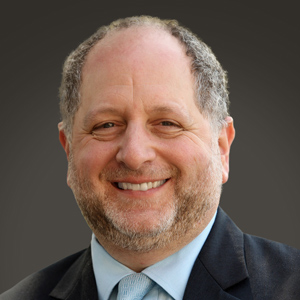
Aeon J. Skoble
Aeon J. Skoble, Fraser Institute senior fellow, is a professor of philosophy and chairman of the Philosophy Department at Bridgewater State University in Massachusetts. Widely regarded for his innovative methods of teaching economic key concepts and the philosophy behind markets and voluntary exchange, Professor Skoble has frequently lectured and written for the U.S.-based Institute for Humane Studies and the Foundation for Economic Education. He is the author of The Simpsons and Philosophy and Deleting the State: An Argument about Government. Prof. Skoble received a BA from the University of Pennsylvania and an MA and PhD from Temple University in Philadelphia, Pennsylvania.
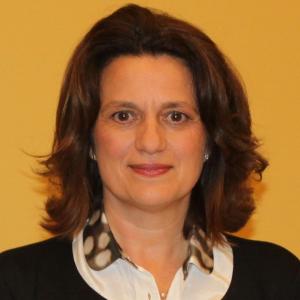
Sylvana Tomaselli
Sylvana Tomaselli is a fellow of St John’s College, Cambridge. She is the author of “Mary Wollstonecraft” in The Stanford Encyclopedia of Philosophy (Winter 2020 Edition). Her most recent publications include “The Art of Being in the Eighteenth Century: Adam Smith on Fortune, Luck, and Trust,” in the History of European Ideas and Wollstonecraft: Philosophy, Passion, and Politics, Princeton University Press (2021). Tomaselli has a BA in philosophy from the University of British Columbia, an MA in social and political thought from York University, and an MA and PhD from the University of Cambridge.
Additional Resources
Jane Jacobs and the Center from Center for the Living City.org
A brief history of Jane Jacobs and her role in the development of the Center for the Living City, her efforts to expand the narrative on contemporary urban life and civic engagement, and her philosophy on how cities are integrated systems that have their own logic and dynamism subject to change over time depending on the needs and desires of residents.
Jane Jacobs as Spontaneous Order Theorist with Pierre Desrochers from The Economics Detective via YouTube
Fraser Institute Senior Fellow Pierre Desrochers discusses the life and work of Jane Jacobs as an activist and moral thinker; her beginnings as a business writer covering urban renewal and how it caused her to recognize the policy for the disaster it was, eventually becoming a voice for those whose neighbourhoods were bulldozed and relocated into new buildings preferred by urban planning reformers and city politicians.
The Great Mind and Vision of Jane Jacobs from FEE (by Sandy Ikeda)
A retrospective article covering Jacobs’ pivotal role as an urban activist, moral thinker, and how these ideas took shape and evolved over her lifetime, focusing on this progression via her published books The Economy of Cities (1969), Cities and the Wealth of Nations (1984), The Nature of Economies (2000), and her most famous work, The Death and Life of Great American Cities (1961).
Elinor Ostrom: An Uncommon Woman for the Commons from PNAS.org
A detailed retrospective on Elinor Ostrom’s contributions to the field of political science, economics, and sustainability projects, and the way these individual disciplines overlapped in her research, as evidenced by her 2009 Nobel Prize win in Economics as a political scientist.
Elinor Ostrom Prize Lecture from Nobel Prize.org
A 28-minute video recording of Ostrom’s prize lecture “Beyond Markets and States: Polycentric Governance of Complex Economic Systems”.
Elinor Ostrom 1933-2012 from EconLib
A short biographical account of Ostrom’s life’s work and enduring legacy as a proponent of property rights and property rights in favour of environmental sustainability.
Ending The Tragedy of The Commons from Big Think via YouTube
In this video, Elinor Ostrom dispels the myth of the tragedy of the commons using her theoretical and empirical research.
Deirdre Nansen McCloskey from Deirdre McCloskey.com
Deirdre McCloskey’s official site with links to her publications, social media, videos, titles, and interviews.
Deirdre McCloskey from Mercatus
A brief but concise professional bio on McCloskey, as well as her listing as a Distinguished Affiliated Fellow with the F. A. Hayek Program for Advanced Study in Philosophy, Politics, and Economics. The bio details her training as an economist, her tenure at the University of Chicago, and how her writings and research have produced novel insights over a wide range of disciplines such as economic theory, economic history, philosophy, rhetoric, feminism, ethics, transgender advocacy, statistical theory, politics, and law.
How the World Became Rich - Deirdre McCloskey at UCCS from IHS via YouTube
In this video, McCloskey delivers a lecture that summarizes modern economics and history, and concludes that it was ideas, not matter or institutions, that made the difference (delivered at the University of Colorado, Colorado Springs on April 2, 2019).
The Mike Wallace Interview with Ayn Rand from the Ayn Rand Institute via YouTube
Originally broadcast in 1959, Ayn Rand talks with Wallace about the personal philosophy underpinning her books The Fountainhead and Atlas Shrugged, as well as the economy, welfare, the American political system, and taxes.
Ayn Rand - Her Philosophy in Two Minutes from the Ayn Rand Institute via YouTube
A 2-minute video summarizing Rand’s most prominent philosophical idea: objectivism, and how it applies to her philosophical principles of reason, rational self-interest, laissez-faire capitalism, and worldview.
Discover Ayn Rand from Ayn Rand.org
A website dedicated to Rand’s work, philosophy, influence on social and critical thought today, as well as summaries of her personal and professional life and an introduction to Objectivism.
Mary Wollstonecraft, 1759-1797 from The History Guide
A short but concise biographical account of Mary Wollstencraft’s time as a feminist, intellectual and writer, and how her work’s enduring influence laid the groundwork for modern reason, as well as contributed to the new age of reason she herself lived through.
Mary Wollstonecraft from the Stanford Encyclopedia of Philosophy
An encyclopedic overview of Wollstonecraft’s life, pedagogical writings, moral and political writings, posthumous publications, her past and present reputation and legacy, influence on modern philosophical and political thought, as well as a list of additional learning resources.
Mary Wollstonecraft, English Author from Britannica.com
A detailed breakdown of Wollstonecraft’s life, influences, and philosophical ideas, particularly her trailblazing work as an advocate of educational and societal equality for women, embodied in her 1792 seminal text A Vindication of the Rights of Woman.
Rose Wilder Lane, the Secret Behind the Little House Books from the New England Historical Society
An overview of Rose Wilder Lane’s life and advocacy work, as well as her oft-forgotten contributions to her mother’s own legacy of Little House on the Prairie.
The Mother of Libertarianism: Rose Wilder Lane from Libertarianism.org
A 23-minute video that describes how in the early 20th-century, classical liberal ideas were in full retreat with the advent of extensive state interference in the economy until Rose Wilder Lane reignited a passion for liberal ideas in her numerous columns alongside her master work The Discovery of Freedom.
Rose Wilder Lane | Wikipedia audio article from Wikipedia.org via YouTube
A comprehensive look at Rose Wilder Lane’s life as an American journalist, travel writer, novelist, political theorist, and daughter of author Laura Ingalls Wilder. Along with Ayn Rand and Isabel Paterson, Lane is credited as one of the founders of the American libertarian movement.
Anna Schwartz | Women in Economics from Marginal Revolution University via YouTube
The second episode of MRU’s Women In Economics series, covering Anna Schwartz and he influence as one of the most influential monetary economists of the 20th century, and how she dedicated the rest of her life to studying economics, changing general perception and understanding of the Federal Reserve and the Depression.
Anna Jacobson Schwartz from National Women’s Hall of Fame
An overview of Schwartz’s life and legacy as a critical monetary scholar of the 20th century, her meticulousness in the presentation, explanation and interpretation of data in her field, as well as her tenure with the National Bureau of Economic Research.
Anna Jacobson Schwartz, American Economist from Britannica.com
A review of Schwartz’s work as an advocate of monetarism and collaborative efforts with Milton Friedman, and overall contributions to economic theory and understanding of institutions.
Milton Friedman / Rose Friedman 2003 Interview - Free to Choose / Power of Choice from Basic Economics via YouTube
An 11-minute video of Milton Friedman and Rose Director Friedman interviewed in 2003 by Bob Chitester (President of Free to Choose media) on the emancipatory power of choice that tangibly and psychologically benefits all people in a democratic, free-market society.
Interview with Rose and Milton Friedman from New Media.ufm
In this interview, Milton Friedman, who was awarded the 1976 Nobel Prize in Economics, and Rose Director Friedman, explain the values, objectives, and beginnings of the Mont Pelerin Society—specifically what it was like to create a society dedicated to classical liberalism in a world where the prevailing economic views leaned towards central planning and collectivism.
Remembering Rose Friedman from Forbes
A retrospective on Rose Director Friedman’s contributions to the field of economics, economic history, her collaborations with her husband, Milton, including their joint publications Free to Choose (1980) and Tyranny of the Status Quo (1984), which critiqued how lobbies and organized interests held the upper hand in resisting and quashing reforms, from economic policies to school vouchers, and how the “happiness thesis” could be applied to their own lives.
Essential Scholars is brought to you by
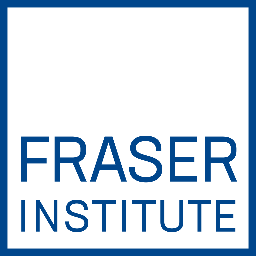
Fraser Institute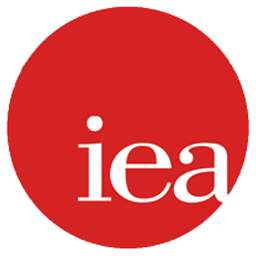
Institute for Economic Affairs
Institute of Public Affairs
Foundation for Economic Education
Acknowledgements
Made possible by generous grants from the Lotte and John Hecht Memorial Foundation, the John Templeton Foundation, and the Peter and Joanne Brown Foundation.






